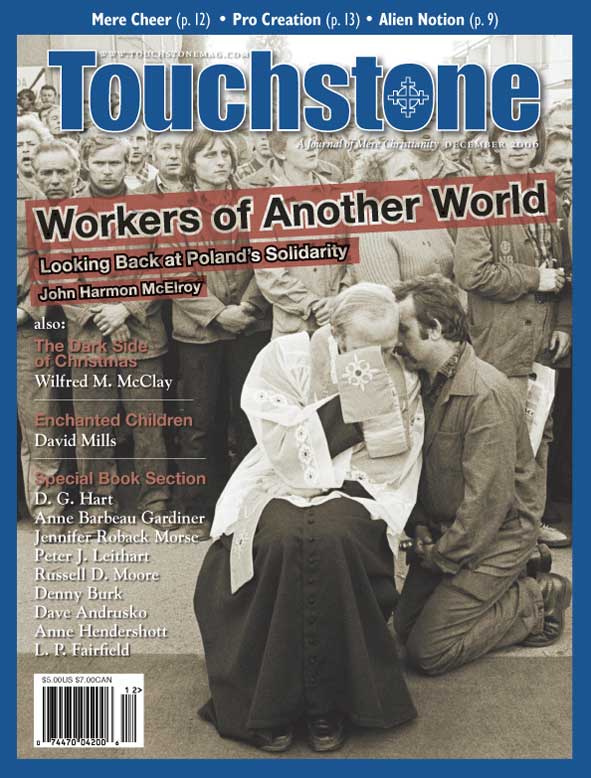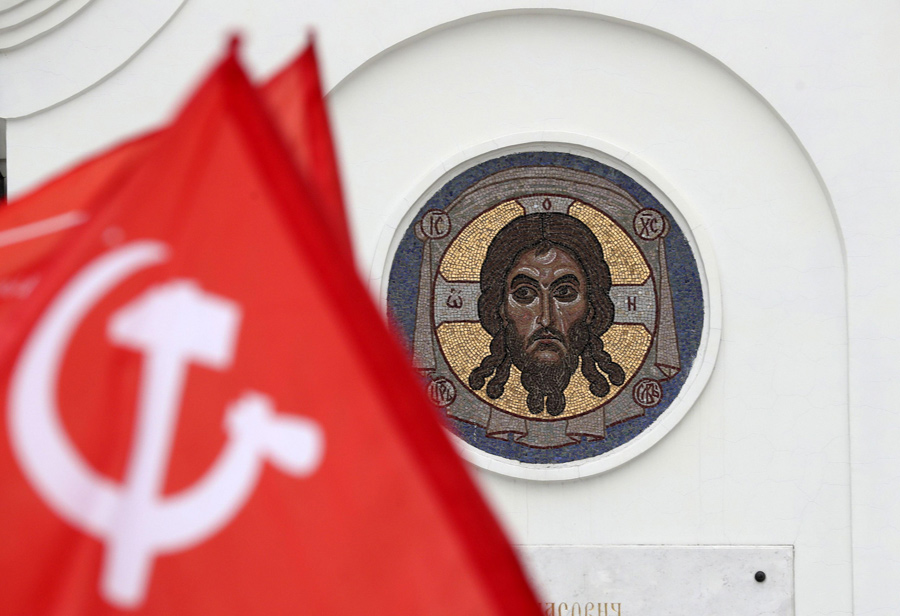The French Invention
The Conversion of Imagination:
From Pascal Through Rousseau to Tocqueville
by Matthew W. Maguire
Harvard University Press, 2006
(285 pages, $49.95, hardcover)
reviewed by Peter J. Leithart
In his Victorian Fantasy (happily reprinted last year in an updated edition), the literary historian Stephen Prickett writes that between 1775 and 1825, “something extraordinary” happened to the imagination: “From being terms of derision, or descriptions of daydreaming, words like ‘fantasy, and ‘imagination, suddenly began to take on a new status as hurrah words.”
Imagination’s Triumph
“Imagination” remains a hurrah word today, more than ever. Critical theorists strive for “imaginative” insights, postmodern philosophers see imagination as the pathway through the veil of sublime to that Unnamable Something beyond, the spiritually inclined appeal to religious imagination, and John Lennon’s musical exhortation to “Imagine” is still familiar enough for hip advertisements. As Matthew Maguire says in his provocative new book, “imagination” lends a “perceptible glow” to any word in its vicinity.
Prior to the modern period, this “exalted imagination” would have been, well, unimaginable. How did we get here? The story is complex, and The Conversion of the Imagination, first written as the author’s Ph.D. dissertation, does not pretend to tell it all.
Maguire, who teaches history at Kenyon College, contents himself with uncovering a crucial but largely neglected subplot in the story of imagination’s triumph. Most accounts of the imagination focus on Romanticism, and often on the Anglo-German axis of Romanticism.
Maguire examines French thinkers, mainly of the pre-Romantic period. Moving from Pascal through Rousseau to Tocqueville, he explores transformations within the “shared, precise, and dynamic configuration of language within and surrounding imagination” common to his three main writers.
His book is dense and challenging. It is not a beach read, and he will never have to worry over competing bids for movie rights. His argument proceeds through close readings of primary texts, interspersed with occasional arguments with other interpreters, and the overall thrust of the argument sometimes gets lost in the detailed attentiveness of his textual interpretations.
Following the twists of the texts is a rewarding exercise, however, since the book is intellectual history of a very rare order. Maguire is a careful and, dare I say, imaginative reader, alert to turns in argument and rhetoric. How many readers of Democracy in America have noticed that Tocqueville uses some form of imaginer over a hundred times?
He is clearly well informed about contemporary thought, but politely allows the writers he examines to set their own terms as they address their own problems, not ours. Because of his carefulness, he offers fresh historical insights and opens up new angles for pondering modern culture and its culmination, or collapse, in postmodernism.
Peter J. Leithart is an ordained minister in the Presbyterian Church in America and the president of Trinity House Institute for Biblical, Liturgical & Cultural Studies in Birmingham, Alabama. His many books include Defending Constantine (InterVarsity), Between Babel and Beast (Cascade), and, most recently, Gratitude: An Intellectual History (Baylor University Press). His weblog can be found at www.leithart.com. He is a contributing editor of Touchstone.
bulk subscriptions
Order Touchstone subscriptions in bulk and save $10 per sub! Each subscription includes 6 issues of Touchstone plus full online access to touchstonemag.com—including archives, videos, and pdf downloads of recent issues for only $29.95 each! Great for churches or study groups.
Transactions will be processed on a secure server.
more on conversion from the online archives
more from the online archives
calling all readers
Please Donate
"There are magazines worth reading but few worth saving . . . Touchstone is just such a magazine."
—Alice von Hildebrand
"Here we do not concede one square millimeter of territory to falsehood, folly, contemporary sentimentality, or fashion. We speak the truth, and let God be our judge. . . . Touchstone is the one committedly Christian conservative journal."
—Anthony Esolen, Touchstone senior editor











